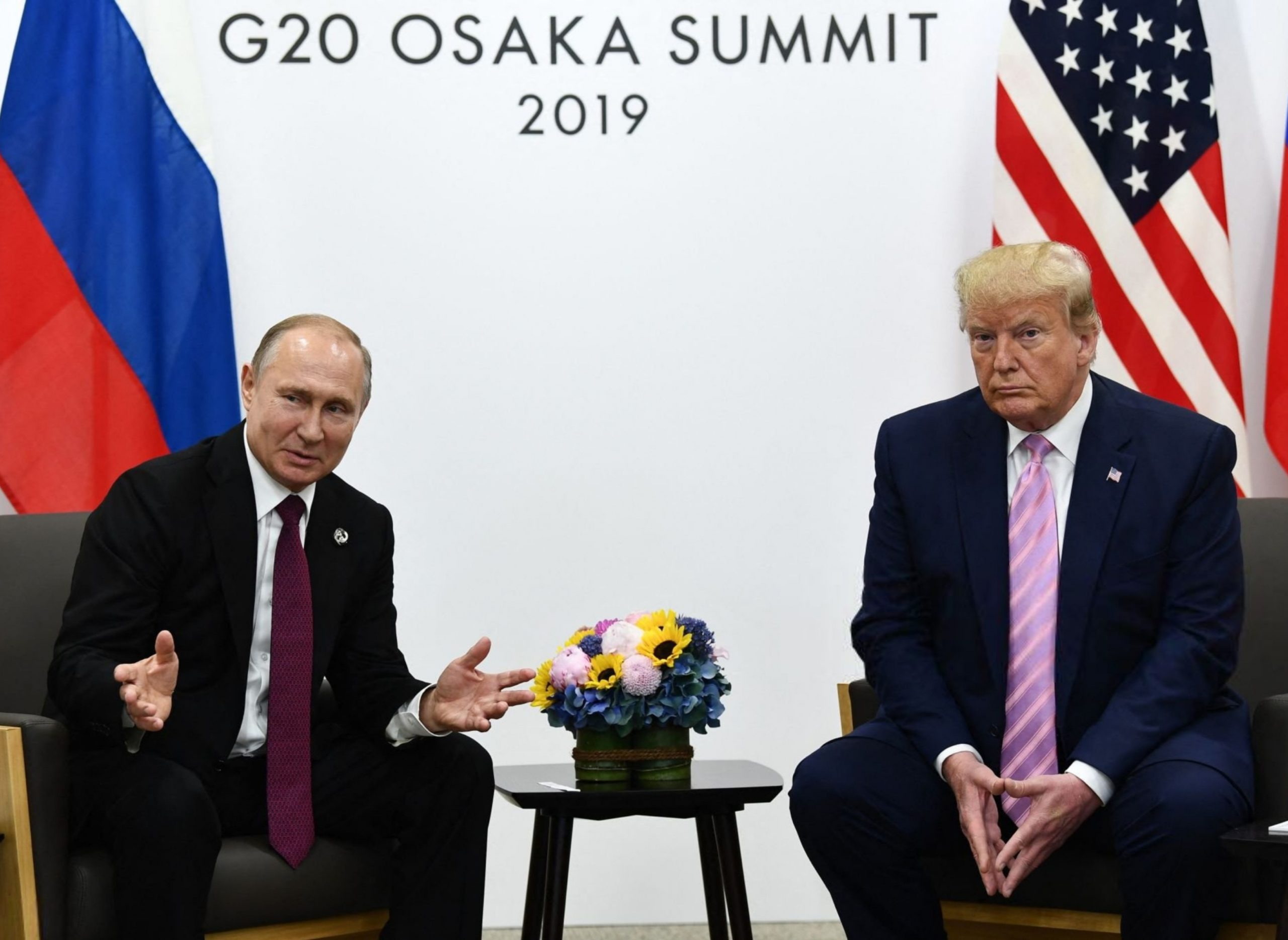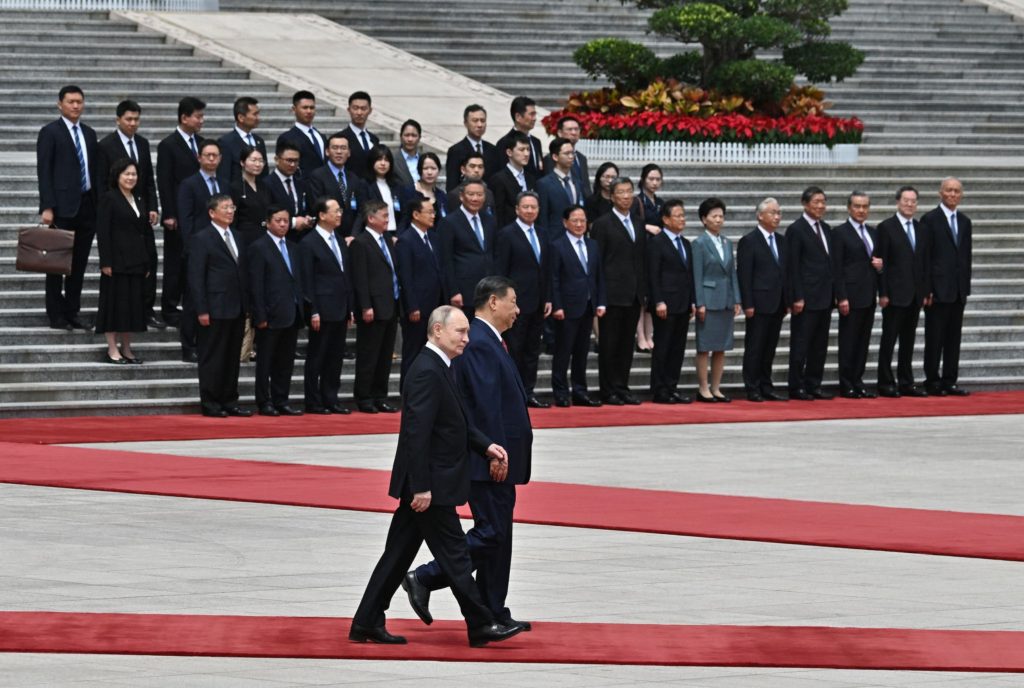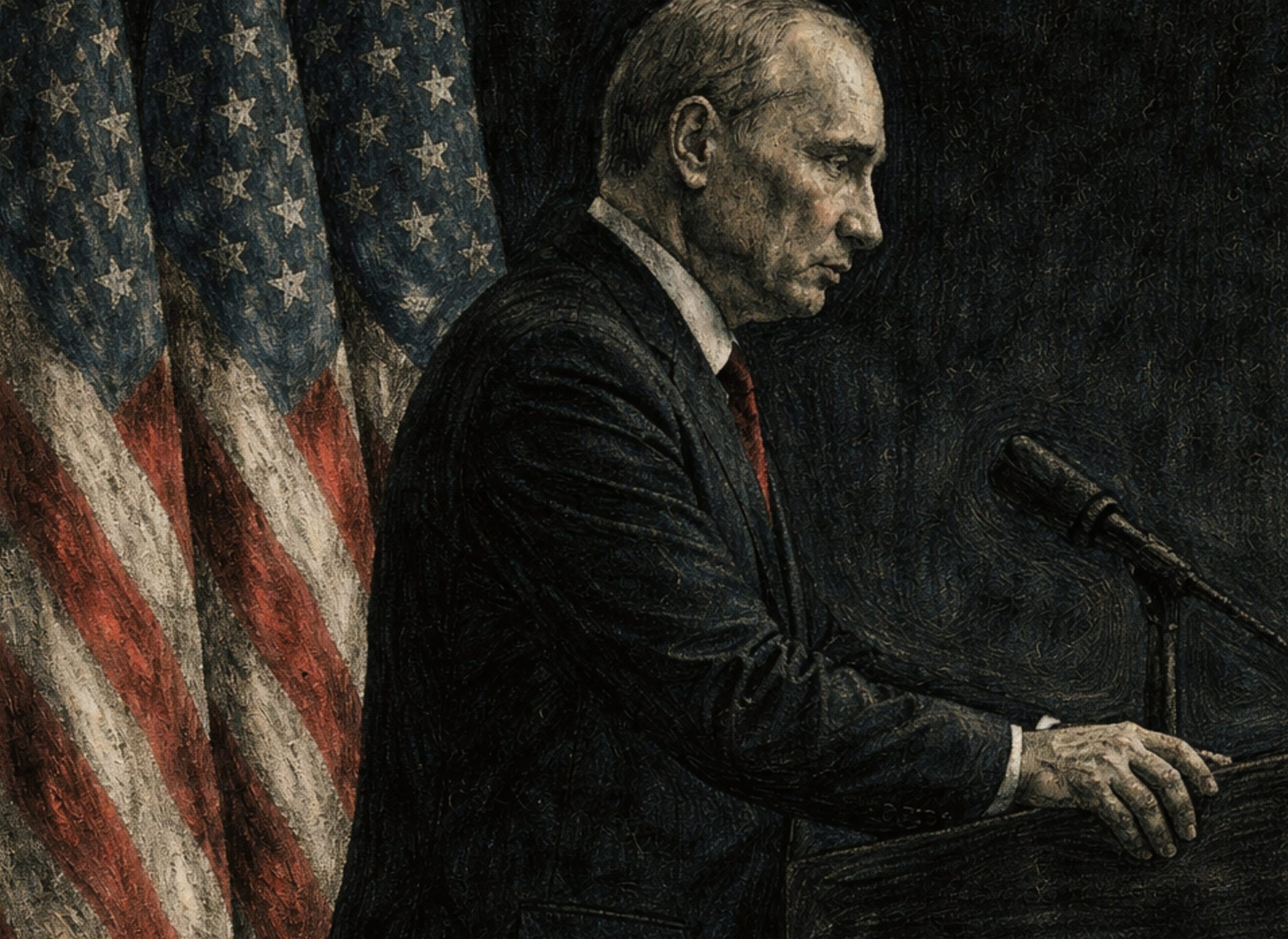
The Mirage of Friendship
Why Trump’s Russia Strategy Won’t Work
By | Jacob Bosen,
APRIL 05, 2025
The United States should not bet on personal diplomacy to achieve its strategic interests with Russia. While personal diplomacy has worked in the past in other situations, it does not work with adversaries that have major ideological differences and authoritarian governance structures. Some may point to President Eisenhower’s diplomatic efforts to end the Korean War. While successful, North Korea still presents a daily threat to South Korea and the United States. Authoritarian regimes will always pose threats to democracies until fully defeated or removed from power. The same approach should not be taken toward Russia or the threat will never cease to exist.
When President Trump humiliated Ukraine’s President Zelenskyy in the Oval Office and said, “You don’t have the cards,” he was right from a realist perspective. What President Trump does not realize is that the United States does not have many cards to play either. Most of the cards are in the Russian hand, and it is prepared and more than happy to play the long game. The United States is not willing to take a firmer stance toward Russia and President Putin knows this. Public opinion has stifled the options that the United States has. President Trump wants a peace deal just to say he has a peace deal. President Putin is counting on this way of thinking. Just like Adolf Hitler deceived the West during the Munich Agreement, Putin will do the same.
The Unraveling Order
A new axis is forming. Russia has looked to China as a partner to counter the United States. Both countries have a shared communist history, have authoritarian governance styles, view the United States to be a threat to their interests, and are increasing cooperation on all levels to revise the status quo. President Putin and President Xi naturally gravitate toward one another because of the authoritarian nature of their regimes. Putin sees China as a potential partner in spreading authoritarian measures throughout the world that make the Russian state safer from penetration.
Since both countries have fallen further into pushing authoritarianism on their own societies, they have increased cooperation and see each other as reliable. Russia does not see the United States as a reliable partner because of the contradiction in governance styles and interests. Russia is seeking to play the United States and use the personal ambition and ego of President Trump to make strategic gains. In recent decades, Russia and China have increased cooperation on all levels and have entered into an unofficial alliance of no limits.
While both reject the notion of an unofficial alliance to ensure flexibility, an axis against the United States and the West is certainly forming. Consistent trade agreements and joint military exercises are continuing to increase between the two nations, despite Russia’s war in Ukraine. Russia’s war against Ukraine, constant attempts to infiltrate democratic societies and cause them to self-destruct from the inside, alignment with authoritarian regimes around the world, disinformation and misinformation operations, and closing of its society to the outside world are all causes for alarm.

China’s actions against Hong Kong, suppression of the Uyghurs, growing aggression towards Taiwan and the Philippines, infiltration of the United States with extensive spy networks, and the encirclement of vulnerable areas of the world through debt-traps and wolf warrior diplomacy are all areas that should grab the attention of the United States. President Trump’s current approach to Russia has made the United States less reliable and predictable in the eyes of its transatlantic allies. Europe recognizes the Russian threat and is experiencing a fundamental strategic shift due to the ongoing war on the European continent.
The United States has led the transatlantic partnership since the end of World War II and seems to be stepping away to a borderline isolationist position. While restructuring and burden sharing is needed, the United States should still seek to lead the Western world. The intentional effort to increase multipolarity in global politics will increase instability. NATO sits in an uncomfortable position with unpredictability surrounding the alliance because of the United States. Although the United States maintains the highest military budget in the alliance, questions regarding whether the United States would come to the defense of a NATO ally in the case of an attack by Russia have grown.
NATO sits in an uncomfortable position with unpredictability surrounding the alliance because of the United States.
Europe now seems to be scrambling to determine what next steps are if the United States dramatically reduces its involvement in the alliance. When President Trump decreased aid for Ukraine and stopped intelligence sharing with the Ukrainian military, Europe convened an emergency meeting to determine its next steps in the fight against Russian aggression. Europe sees the United States as an unreliable ally that is trying to develop relations with an arch enemy. Ever since the Long Telegram showed the immense and immediate threat that the Soviet Union presented to the United States after the conclusion of World War II, there has been bipartisan opposition to Russia.
The actions that Russia has taken against the United States and the West have provided for bipartisan consensus regarding the threat that Russia poses. Now, many Republican lawmakers are seemingly quiet about this threat in the effort to keep good relations with President Trump and to avoid pressure from the administration. War should be avoided with Russia, but it is also a mistake to not exhaust all options to counter a threat that wants to destroy the United States from the inside. American institutions and ideals must be protected and promoted.
A Strategy Bound to Fail
The current state of affairs between the United States and Russia is certainly a cause for concern. Despite this, the contradictory societies and governance structures will not allow Russia and the United States to have good relations that are in the interests of both nations. Russia wants to see authoritarianism spread throughout the world to safeguard its state, it is aligning with China against the United States, and it is playing the long game in hopes of the United States making errors and giving it the advantage.
The route that the United States is pursuing is causing its allies to be confused, frustrated, and on edge. The same route is causing its enemies to open champagne bottles in Moscow and Beijing and wait for the United States to give them the advantage. This strategy will have long-term consequences that the United States may not be able to come back from. Russia will become stronger, an axis will continue to form against the United States and the West, and the United States will retrench at a time when global leadership is paramount.
Ideological Push into Russia
As authoritarian regimes like Russia seek to replace the liberal international order, the United States must revive its tradition of democracy promotion through ideological, informational, and strategic engagement, leveraging morality and historical successes. Democracy promotion is not only one of the most cost-effective tools in U.S. foreign policy but also a critical mechanism for securing national interests and making the world safe for democracy. As Russia drifts further away from Western systems of government and embraces authoritarian styles, it naturally counters the United States and its allies.
The same route is causing its enemies to open champagne bottles in Moscow and Beijing and wait for the United States to give them the advantage.
Russia wants to see authoritarianism and totalitarianism spread throughout the world to safeguard its oppressive governance style. Even though this is true, democracies have the upper hand. The more Russia tightens its grip on its own people, the more democratic movements within its society will spring up through its fingers. The biggest threat to the authoritarian system of Russia is its own people. The United States must reinvigorate its democracy promotion efforts using public diplomacy, ideological engagement, and strategic initiatives to counter these authoritarian challenges and secure the liberal international order.
The United States needs to penetrate deeper into Russian society and go on an ideological and moral campaign against the authoritarian government of Russia. The Russian people are not the enemy, but the government most certainly is. The moral superiority of democratic representative government connects to the hearts and minds of citizens under authoritarian rule across the globe. It will do the same in Russia. By rekindling its commitment to democracy promotion, the United States can defend its national interests and inspire hope and resilience among those looking for freedom. The tools of the past remain powerful in shaping a freer, more just world — and now is the time to use them.


